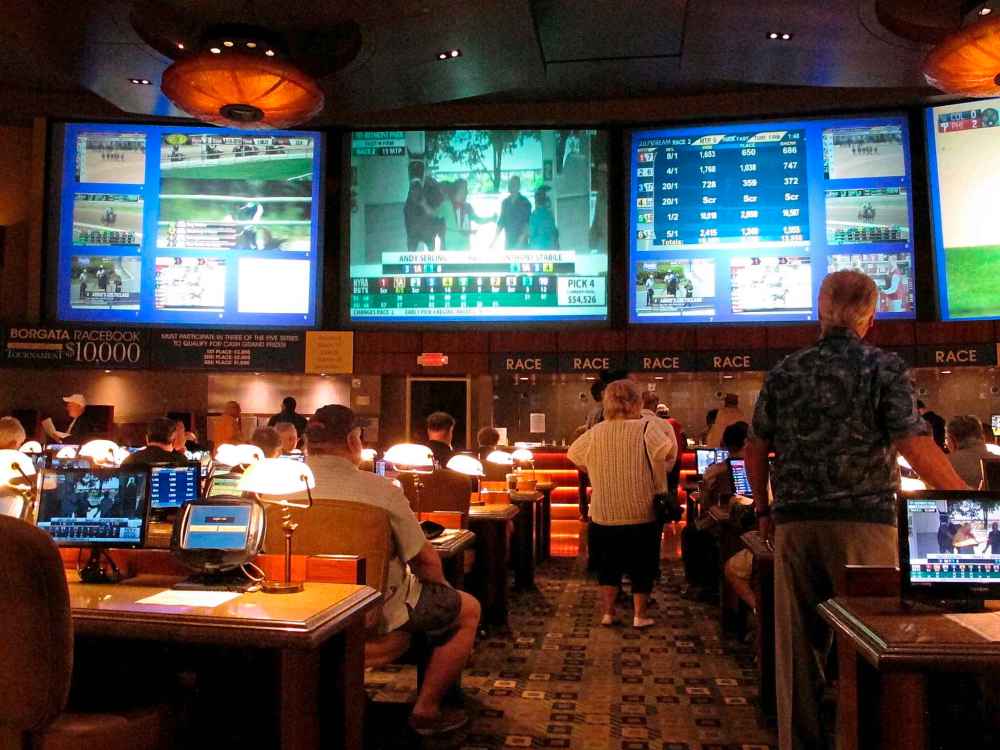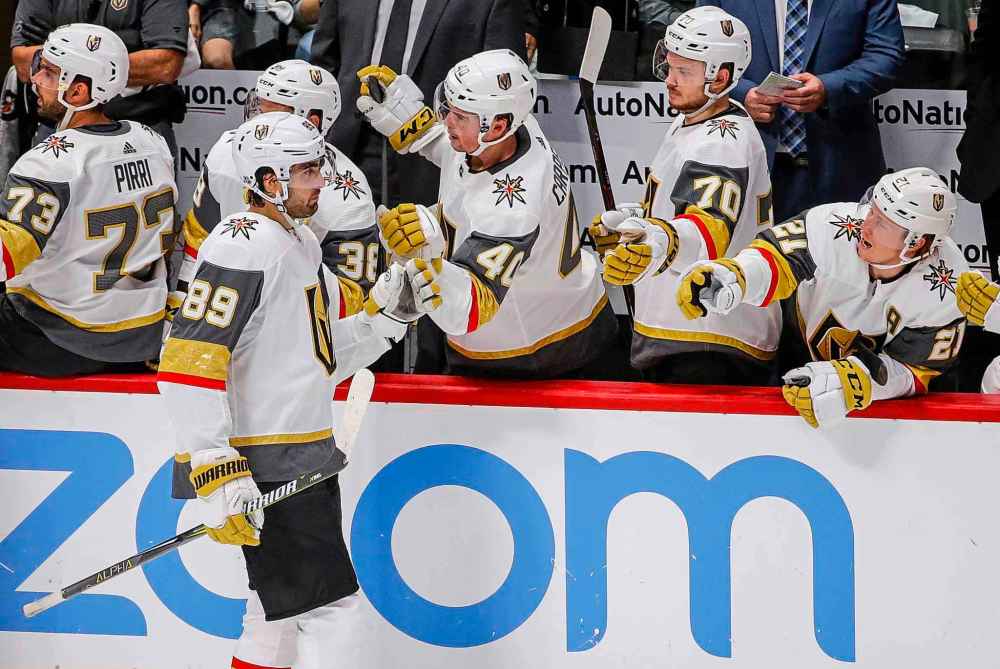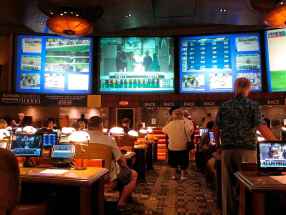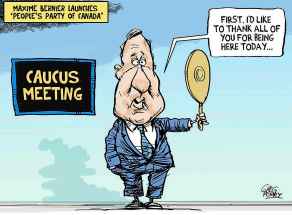U.S. gambling monster lurks under NHL bed
Read this article for free:
or
Already have an account? Log in here »
To continue reading, please subscribe:
Monthly Digital Subscription
$0 for the first 4 weeks*
- Enjoy unlimited reading on winnipegfreepress.com
- Read the E-Edition, our digital replica newspaper
- Access News Break, our award-winning app
- Play interactive puzzles
*No charge for 4 weeks then price increases to the regular rate of $19.00 plus GST every four weeks. Offer available to new and qualified returning subscribers only. Cancel any time.
Monthly Digital Subscription
$4.75/week*
- Enjoy unlimited reading on winnipegfreepress.com
- Read the E-Edition, our digital replica newspaper
- Access News Break, our award-winning app
- Play interactive puzzles
*Billed as $19 plus GST every four weeks. Cancel any time.
To continue reading, please subscribe:
Add Free Press access to your Brandon Sun subscription for only an additional
$1 for the first 4 weeks*
*Your next subscription payment will increase by $1.00 and you will be charged $16.99 plus GST for four weeks. After four weeks, your payment will increase to $23.99 plus GST every four weeks.
Read unlimited articles for free today:
or
Already have an account? Log in here »
Hey there, time traveller!
This article was published 19/09/2018 (2640 days ago), so information in it may no longer be current.
They’ve yet to play a meaningful game, but already the New Jersey Devils and Las Vegas Golden Knights are the big winners of the 2018-19 NHL season.
The Devils and Knights both announced this week they have gone where no NHL team had before — signing lucrative sponsorship deals with companies that specialize in sports gambling.
That’s big news. As recently as last year, NHL commissioner Gary Bettman was declaring the gambling world a no-go zone for NHL teams. That changed in May, however, when a ruling by the U.S. Supreme Court struck down federal prohibitions on sports gambling and declared the matter an issue for individual states to decide for themselves.

New Jersey was the first to legalize sports betting after the Supreme Court ruling. Devils president Hugh Weber told Bloomberg News this week his team has already signed deals with a casino and a local sportsbook worth at least US$5 million to the team’s bottom line this season.
The Golden Knights were also quick to jump on board, announcing they’d signed a sponsorship deal with mega-sportsbook William Hill.
Although sports gambling is legal in Nevada, it’s only since the Supreme Court ruling the Knights could go into business with the companies that facilitate betting on NHL games. Knights president Kerry Bubolz declared the new deal nothing short of a “historic, landmark agreement.”
The Knights didn’t say what the expected income is, but you’ve got to figure a gambling deal in Vegas won’t be worth less than what the Devils are getting in New Jersey.
The folks at William Hill say they couldn’t be more excited to pay the price for a chance to splash the company name on the Knights rinkboards, display live odds on the scoreboard at T-Mobile Arena, and buy the naming rights — no joke — to the Knights line changes, hereafter to be known as the “William Hill Line Change.”
“We hope people will be sitting at T-Mobile and betting between periods,” Joe Asher, William Hill U.S. chief executive officer, told SportsBusiness Journal. “Frankly, we know they do that already. We’re hoping to be able to get more people to our site because the brand will be right there in front of them.”
If it all unfolds anything like it has with soccer in England — where William Hill has long been a pioneer in what is a multibillion-dollar enterprise — it won’t be long before hockey fans will be able to bet on their smartphones in real time, for instance, on whether the Knights will score on their next power play or take the next penalty.
With these pioneering new deals, the Knights and Devils are already ahead of their NHL competition this season, regardless of what they do on the ice.
That should give Canadian hockey fans reason to be concerned.
Because if this is the future of the NHL — multimillion-dollar gambling deals for U.S.-based teams that will only grow in value and number in the years to come as more and more states legalize sports betting — where does that leave NHL teams based in puritan Canada, where even the mention of sports gambling still evokes much clutching of pearls in the hallowed halls of Parliament?

Fans of the original Winnipeg Jets franchise, arguably more than anyone, can tell you what happens when Canadian teams are at an economic disadvantage to their American counterparts.
So what happens now if we see American-based teams swimming in new gambling money, while Canada’s seven franchises continue to be shut out at the windows because of this country’s ban on single-proposition sports betting?
On the one hand, the NHL salary cap serves as the great equalizer. No matter how much money your franchise generates, the existence of a cap means you can only spend so much of it on hockey players before you reach the limit.
In other words, while all this new gambling money will make a team such as the Knights more profitable off the ice, it won’t necessarily help make it any better on the ice.
In the short term, that’s good news for Jets fans; however, it’s potentially bad news in the long run for Jets co-owners Mark Chipman and David Thomson.
The NHL salary cap is reset each year based on overall hockey revenues, so a sudden influx of gambling money into the league could also lead to a rise in the salary cap. That could create a situation in years to come where the Jets have to pay more to compete for players, despite the fact they don’t have the same access to easy gambling money U.S. teams now have.
I suggest, at this point, in the interests of fair play, Canada’s NHL teams should fight back by immediately selling sponsorships to newly legalized marijuana companies. The marketing campaign writes itself: “When the Winnipeg Jets want to fly higher, they choose only the finest sensimilla.”
Preposterous? Tell me how it would be any different than the incestuous relationship Canada’s hockey teams have had forever with the beer companies? Let’s face it: if hockey didn’t exist, Molson Brewery would have invented it.
Maybe this is alarmist. Maybe this new gambling revenue will add up to chump change in the grand scheme of things and none of this will become an issue for Canada’s NHL teams.
However, it’s been just 15 years since a team in the English Premier League first sewed the name of a gambling company on to its uniforms. Today, more than two-thirds of the teams in the EPL have a gambling company’s logo emblazoned on their kits — deals collectively worth more than US$100 million a year.

That’s just for cresting on uniforms. The really big money for English soccer teams is in gambling sponsorship deals inside their stadiums and on soccer broadcasts, all of it aimed at encouraging fans to use their smartphones to bet all game long on every conceivable scenario.
The Daily Telegraph estimates British bettors lost — not bet, lost — more than US$20 billion last year to British gambling companies.
So, yeah, maybe this is alarmist.
Or maybe, just maybe, the new gambling deals the Devils and Knights unveiled this week are the tip of an iceberg that is about to change hockey in ways we can only begin to imagine.
paul.wiecek@freepress.mb.ca
Twitter: @PaulWiecek

Paul Wiecek
Reporter (retired)
Paul Wiecek was born and raised in Winnipeg’s North End and delivered the Free Press -- 53 papers, Machray Avenue, between Main and Salter Streets -- long before he was first hired as a Free Press reporter in 1989.
Our newsroom depends on a growing audience of readers to power our journalism. If you are not a paid reader, please consider becoming a subscriber.
Our newsroom depends on its audience of readers to power our journalism. Thank you for your support.










